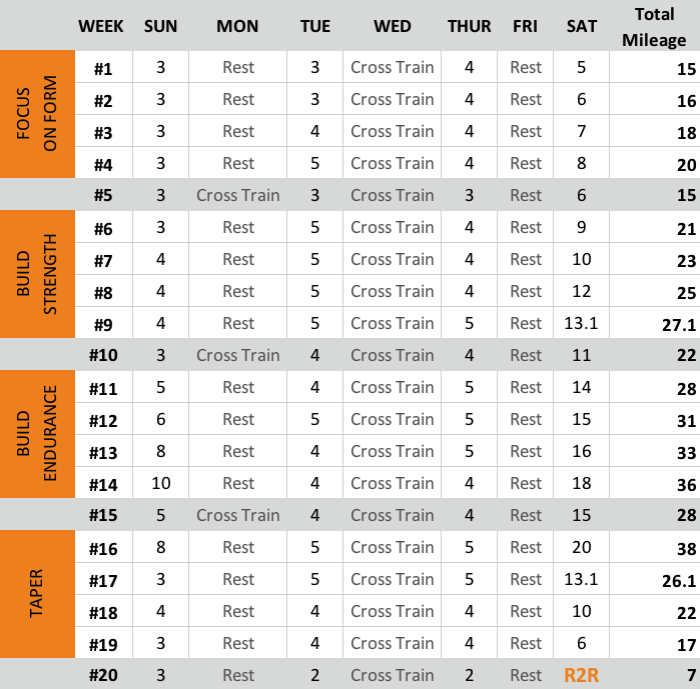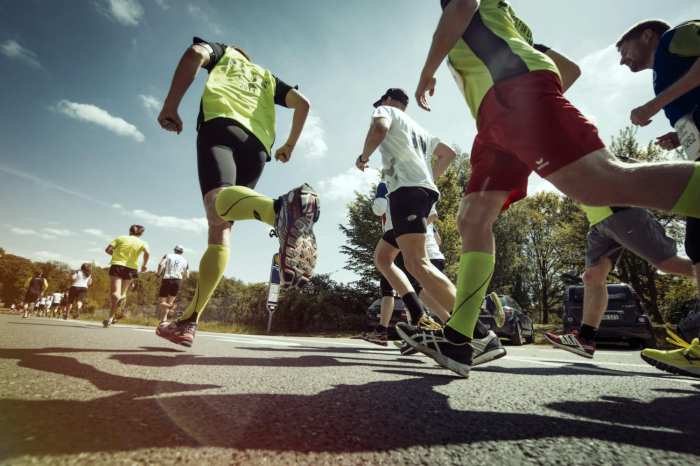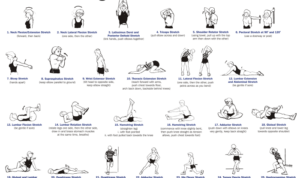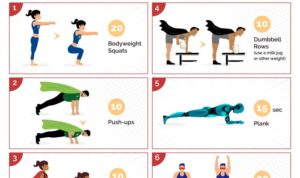Marathon training isn’t just about running; it’s a lifestyle that brings a myriad of benefits and challenges. From physical gains to mental toughness, this journey is about pushing your limits and discovering what you’re truly capable of.
Whether you’re a seasoned runner or just starting out, the world of marathon training offers a unique blend of excitement, discipline, and self-discovery. Get ready to lace up your shoes and embark on this exhilarating adventure.
Benefits of Marathon Training
Marathon training isn’t just about getting in shape—it offers a whole bunch of benefits for your body, mind, and overall well-being.
Physical Benefits
When you’re hitting the pavement for those long runs, your body is reaping the rewards. Marathon training helps to improve cardiovascular health, strengthen muscles, and boost endurance. Not to mention, it can also aid in weight loss and increase bone density.
Mental Health Benefits
Running those miles isn’t just good for your body, it’s also a game-changer for your mental health. The endorphins released during exercise can help reduce stress, anxiety, and symptoms of depression. Plus, the sense of accomplishment from crossing that finish line can do wonders for your self-esteem and confidence.
Overall Well-Being
Engaging in marathon training doesn’t just stop at physical and mental benefits—it can positively impact your overall well-being. From better sleep quality to increased energy levels, marathon training can help you feel more balanced and content in your daily life.
Essential Gear for Marathon Training
To have a successful marathon training experience, it’s crucial to have the right gear to support your journey. From proper clothing to the right footwear and additional accessories, each item plays a significant role in your training regimen.
Necessary Clothing Items
- Moisture-wicking shirts and shorts to keep you dry and comfortable during long runs.
- Compression socks to improve blood circulation and reduce muscle fatigue.
- A well-fitted sports bra for female runners to provide essential support and comfort.
- Lightweight and breathable running hat or visor to protect your face from the sun.
Importance of Proper Footwear
Proper footwear is perhaps the most critical gear for marathon training. Investing in a good pair of running shoes that provide support, cushioning, and stability can prevent injuries and enhance your performance. Make sure to get fitted at a specialty running store to find the right shoes for your foot type and running style.
Additional Beneficial Gear
- Hydration packs or belts to carry water or sports drinks during long training runs to stay hydrated.
- A GPS running watch to track your pace, distance, and heart rate, helping you monitor your progress and set goals.
- Running sunglasses to protect your eyes from UV rays and reduce glare during sunny training sessions.
Nutritional Requirements for Marathon Training

To perform at their best during marathon training, runners need to pay close attention to their nutritional intake. A balanced diet is crucial to fueling long-distance runs and aiding in recovery.
Role of Carbohydrates, Proteins, and Fats
Carbohydrates are essential for providing energy to muscles during exercise. They are a primary fuel source for long-distance runners and should make up a significant portion of their diet. Proteins are important for muscle repair and recovery, helping to prevent injury and improve performance. Fats are also necessary for endurance athletes as they provide a concentrated source of energy.
- Carbohydrates: Include sources like whole grains, fruits, and vegetables in your diet to ensure an adequate supply of energy for training and races.
- Proteins: Incorporate lean sources of protein such as chicken, fish, beans, and nuts to support muscle growth and repair.
- Fats: Opt for healthy fats like avocados, nuts, seeds, and olive oil to provide sustained energy and support overall health.
Hydration Needs and Fueling Strategies
Proper hydration is key for marathon runners to maintain performance and prevent dehydration. It’s essential to drink an adequate amount of water before, during, and after runs to replace fluids lost through sweat. Additionally, fueling strategies like consuming energy gels, sports drinks, or snacks during long-distance runs can help maintain energy levels and delay fatigue.
- Hydration: Drink water consistently throughout the day and during training runs to stay hydrated. Monitor urine color to ensure proper hydration levels.
- Fueling: Experiment with different types of fueling options during training to find what works best for you. Aim to consume a balance of carbohydrates and electrolytes to support endurance.
Training Plans and Strategies

Creating a marathon training plan is crucial for success. Here are some tips for designing an effective plan:
Significance of Rest Days
Rest days are essential in a marathon training schedule to allow the body to recover and prevent injury. It’s important to listen to your body and not skip rest days to avoid overtraining.
Cross-Training Activities, Marathon training
Cross-training activities can complement marathon training by improving overall fitness, preventing boredom, and reducing the risk of overuse injuries. Some examples of cross-training activities include swimming, cycling, yoga, and strength training.
Injury Prevention and Recovery
When it comes to marathon training, injury prevention and recovery are crucial for maintaining peak performance and avoiding setbacks. Here, we will discuss common injuries associated with marathon training, stretching and warm-up routines to prevent injuries, and the importance of recovery strategies like rest, ice baths, and foam rolling.
Common Injuries Associated with Marathon Training
- Runner’s Knee: Pain around the kneecap due to overuse.
- Shin Splints: Pain in the front lower leg from repetitive stress.
- Plantar Fasciitis: Inflammation of the tissue on the bottom of the foot.
- Achilles Tendinitis: Pain and swelling in the Achilles tendon.
Stretching and Warm-up Routines to Prevent Injuries
- Dynamic stretching before running to improve flexibility and range of motion.
- Static stretching after running to maintain muscle length and prevent tightness.
- Incorporate exercises like leg swings, lunges, and hip circles.
Importance of Recovery Strategies
- Rest: Allow time for your body to recover and repair muscle tissue.
- Ice Baths: Reduce inflammation and muscle soreness after long runs.
- Foam Rolling: Helps with myofascial release and muscle recovery.
Mental Preparation for Marathon Training
When it comes to marathon training, mental preparation is just as important as physical preparation. The role of mental toughness in long-distance running cannot be overlooked, as it can make or break your performance on race day. Having a strong mindset can help you push through the toughest parts of your training and race, and can even give you the edge over your competitors.
Staying Motivated During Challenging Training Sessions
- Set small, achievable goals for each training session to keep yourself motivated.
- Find a training partner or group to train with for added motivation and support.
- Reward yourself after completing a challenging workout to stay motivated for the next one.
- Listen to upbeat music or podcasts during your training sessions to keep your energy levels high.
Visualization and Goal-Setting Strategies
- Visualize yourself crossing the finish line strong and feeling accomplished to boost your confidence.
- Set both short-term and long-term goals to keep you focused and motivated throughout your training.
- Use positive affirmations and mantras to stay mentally strong during tough workouts and races.
- Track your progress and celebrate small victories along the way to keep yourself motivated.


